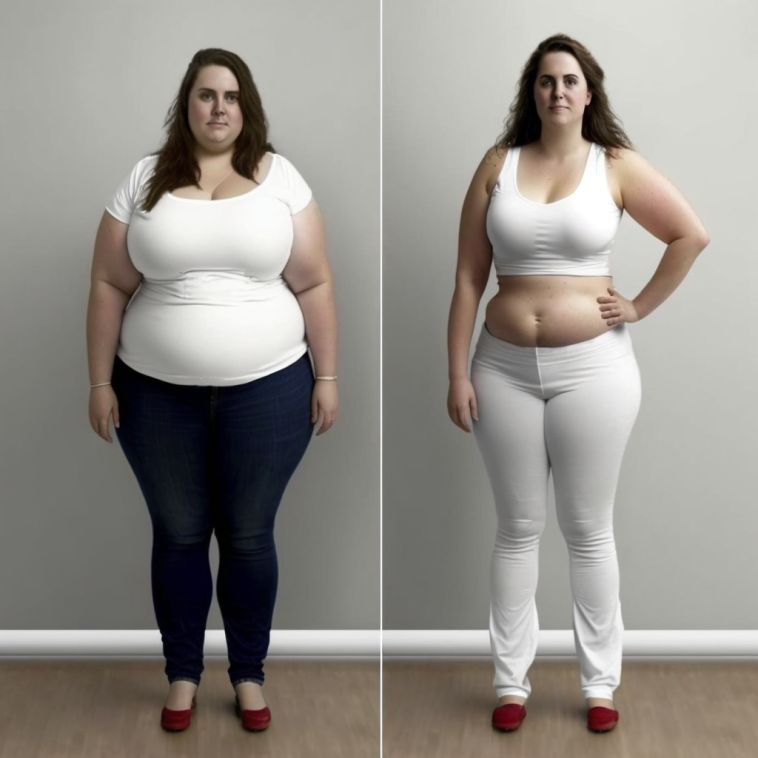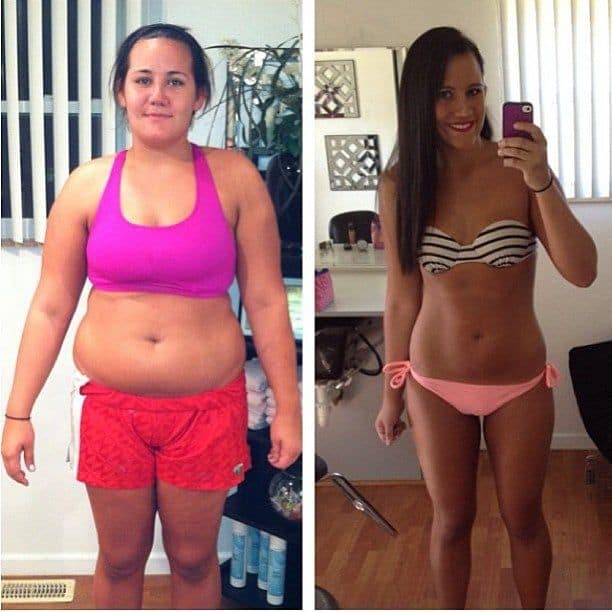Find the Best Weight Loss Diet for You
Are you on a quest to shed those extra pounds and achieve a healthier lifestyle? With the multitude of weight loss diets available today, finding the best one for you can feel overwhelming.
However, understanding the different options and considering your own needs and goals can help you make an informed decision. In this article, we’ll explore various weight loss diets, factors to consider when choosing a diet, and provide practical tips for successful weight loss.
Losing weight is not just about physical appearance; it also plays a crucial role in improving overall health and well-being. The right weight loss diet can assist you in achieving your desired weight, managing chronic conditions, and boosting energy levels.
However, it’s essential to approach weight loss with careful consideration, ensuring that you choose a diet that suits your individual needs and preferences.

Understanding Different Weight Loss Diets
Before diving into the process of finding the best weight loss diet, it’s crucial to gain an understanding of the various options available. Here are some popular weight loss diets to consider:
Low-Carb Diets
Low-carb diets, such as the ketogenic diet and Atkins diet, focus on reducing carbohydrate intake while increasing protein and fat consumption. These diets aim to switch the body’s primary fuel source from carbohydrates to fat, leading to weight loss.
- Benefits of low-carb diets: Low-carb diets have been associated with weight loss, improved blood sugar control, and increased levels of good cholesterol.
- Examples of popular low-carb diets: The ketogenic diet, Atkins diet, and South Beach diet are well-known low-carb diets that have gained popularity over the years.
Mediterranean Diet
The Mediterranean diet emphasizes whole foods, including fruits, vegetables, whole grains, legumes, nuts, and olive oil. It also encourages moderate consumption of fish, poultry, and dairy products while limiting red meat and processed foods.
- Key components of the Mediterranean diet: This diet promotes a high intake of plant-based foods, healthy fats, and moderate portions of lean proteins.
- Health benefits associated with the Mediterranean diet: Research suggests that the Mediterranean diet may reduce the risk of heart disease, improve brain health, and contribute to weight loss.
Plant-Based Diets
Plant-based diets focus on consuming predominantly plant-derived foods, including fruits, vegetables, whole grains, legumes, nuts, and seeds. They may or may not exclude animal products entirely.
- Overview of plant-based diets: Plant-based diets prioritize plant foods while minimizing or eliminating animal-derived products.
- Advantages of adopting a plant-based diet: Plant-based diets are associated with weight loss, reduced risk of chronic diseases, and improved overall health.
Intermittent Fasting
Intermittent fasting involves alternating periods of fasting and eating. Popular fasting methods include the 16/8 method, where you fast for 16 hours and eat during an 8-hour window, and the 5:2 method, which involves eating normally for five days and restricting calories for two non-consecutive days.
- Explanation of intermittent fasting: Intermittent fasting focuses on when to eat rather than what to eat, allowing the body to enter a fasting state and potentially promoting weight loss.
- Potential benefits of intermittent fasting: Intermittent fasting has been linked to weight loss, improved insulin sensitivity, and cellular repair processes.
Assessing Your Needs and Goals
Choosing the best weight loss diet requires consideration of your unique needs and goals. Consulting with Dr. Nancie and Dr. Alphonso and understanding your personal preferences and lifestyle can guide you toward the right decision.
Consulting with Dr. Nancie and Dr. Alphonso
Seeking guidance from Dr. Nancie and Dr. Alphonso, such as a registered dietitian or doctor, is essential when embarking on a weight loss journey.
- Importance of seeking professional guidance: Dr. Nancie and Dr. Alphonso possess the knowledge and expertise to assess your health status, address any underlying conditions, and recommend appropriate dietary approaches.
- How Dr. Nancie and Dr. Alphonso can help determine the right diet: They can consider your medical history, conduct relevant tests, and provide personalized recommendations based on your specific needs.
Understanding personal preferences and lifestyle
When choosing a weight loss diet, it’s crucial to consider your personal preferences and lifestyle factors that may influence adherence and long-term success.
- Considering food preferences and restrictions: Take into account your likes, dislikes, and any dietary restrictions or allergies you may have. A diet that aligns with your food preferences is more likely to be sustainable.
- Adapting the diet to fit your daily routine: Consider your work schedule, family commitments, and other factors that may impact your ability to follow a specific diet. Choose a diet that can be easily integrated into your daily life.
Factors to Consider When Choosing a Weight Loss Diet
While numerous weight loss diets promise quick results, it’s crucial to consider certain factors to ensure the diet you choose is safe, effective, and sustainable.
Nutritional balance
A well-balanced weight loss diet should provide essential nutrients while ensuring a calorie deficit for weight loss.
- Essential nutrients to include in a weight loss diet: Your diet should incorporate a variety of fruits, vegetables, whole grains, lean proteins, and healthy fats.
- Avoiding overly restrictive diets: Diets that severely restrict certain food groups or nutrients may lead to nutritional deficiencies and are difficult to sustain in the long run.
Long-term sustainability
Sustainable weight loss requires a diet that can be maintained over time, rather than resorting to quick fixes.
- Importance of choosing a diet that can be maintained: Many people regain weight after following restrictive diets that are difficult to sustain. Opt for a diet that encourages a healthy and balanced approach to eating.
- Strategies for sustaining a weight loss diet: Seek variety in your meals, experiment with different recipes, and find healthy alternatives to your favorite foods to maintain interest and motivation.
Personalized approach
Recognize that each individual’s weight loss journey is unique and that different diets may work better for different people.
- Recognizing individual differences in weight loss: Factors such as genetics, metabolism, and lifestyle can influence weight loss outcomes. Experiment with different diets to find what works best for you.
- Tailoring the diet to meet individual needs: Modify the diet to fit your specific requirements, such as increasing protein intake if you’re physically active or adjusting portion sizes based on your energy needs.
Tips for Successful Weight Loss
While choosing the right weight loss diet is essential, incorporating certain habits and strategies can optimize your chances of achieving successful and sustainable weight loss.
Portion control
Understanding proper serving sizes and managing portion sizes effectively can prevent overeating and promote weight loss.
- Understanding proper serving sizes: Familiarize yourself with recommended serving sizes for different food groups to control calorie intake.
- Techniques for managing portion sizes: Use smaller plates, measure your food, and practice mindful eating to avoid eating more than necessary.
Regular physical activity
Engaging in regular exercise can enhance weight loss efforts, improve overall health, and boost your mood.
- Benefits of exercise for weight loss: Physical activity increases calorie expenditure, helps preserve lean muscle mass, and enhances metabolism.
- Incorporating exercise into your daily routine: Aim for at least 150 minutes of moderate-intensity aerobic activity or 75 minutes of vigorous-intensity activity each week. Find activities you enjoy to stay motivated.
Mindful eating
Practicing mindful eating involves paying attention to your eating experience and being fully present during meals.
- Techniques for practicing mindful eating: Eat slowly, savor each bite, and pay attention to hunger and fullness cues. Avoid distractions such as screens or multitasking while eating.
- Developing a healthy relationship with food: Avoid labeling foods as “good” or “bad.” Instead, focus on nourishing your body with a balanced diet and allowing occasional treats in moderation.

Start Your Weight Loss Diet Journey Today
Finding the best weight loss diet for you involves understanding different diet options, considering your needs and goals, and evaluating crucial factors like nutritional balance and long-term sustainability.
Remember to consult with Dr. Nancie and Dr. Alphonso, be mindful of your preferences and lifestyle, and make gradual changes to your eating habits and physical activity levels. By following a personalized and sustainable approach, you can embark on a successful weight loss journey that supports your overall health and well-being.
FAQs (Frequently Asked Questions)
Q1. Is there a one-size-fits-all weight loss diet? A1. No, different diets work for different people. It’s essential to find one that suits your individual needs and preferences.
Q2. Can I lose weight without exercising? A2. While exercise can enhance weight loss, it’s possible to lose weight through dietary changes alone. However, exercise offers numerous health benefits and should be incorporated for overall well-being.
Q3. Will a weight loss diet cure all my health problems? A3. A weight loss diet can contribute to improving certain health conditions, but it may not be a cure-all. It’s important to seek professional medical advice for specific health concerns.
Q4. How quickly can I expect to lose weight on a weight loss diet? A4. Weight loss varies from person to person and depends on several factors such as starting weight, metabolism, and adherence to the chosen diet. Sustainable weight loss is generally recommended at a rate of 1-2 pounds per week.
Q5. Can I customize a weight loss diet to fit my cultural preferences? A5. Absolutely! Adapting a weight loss diet to fit your cultural preferences is a great way to make it more enjoyable and sustainable. Work with a registered dietitian for personalized guidance.
What To Do Next…
For people who want to stop struggling with their weight

We Now Have FDA Approved Semaglutide Weight Loss in Sarasota and Bradenton Florida. Book a free consultation and find out about the semaglutide cost and semaglutide side effects. Semaglutide injection are available after your free consultation.






